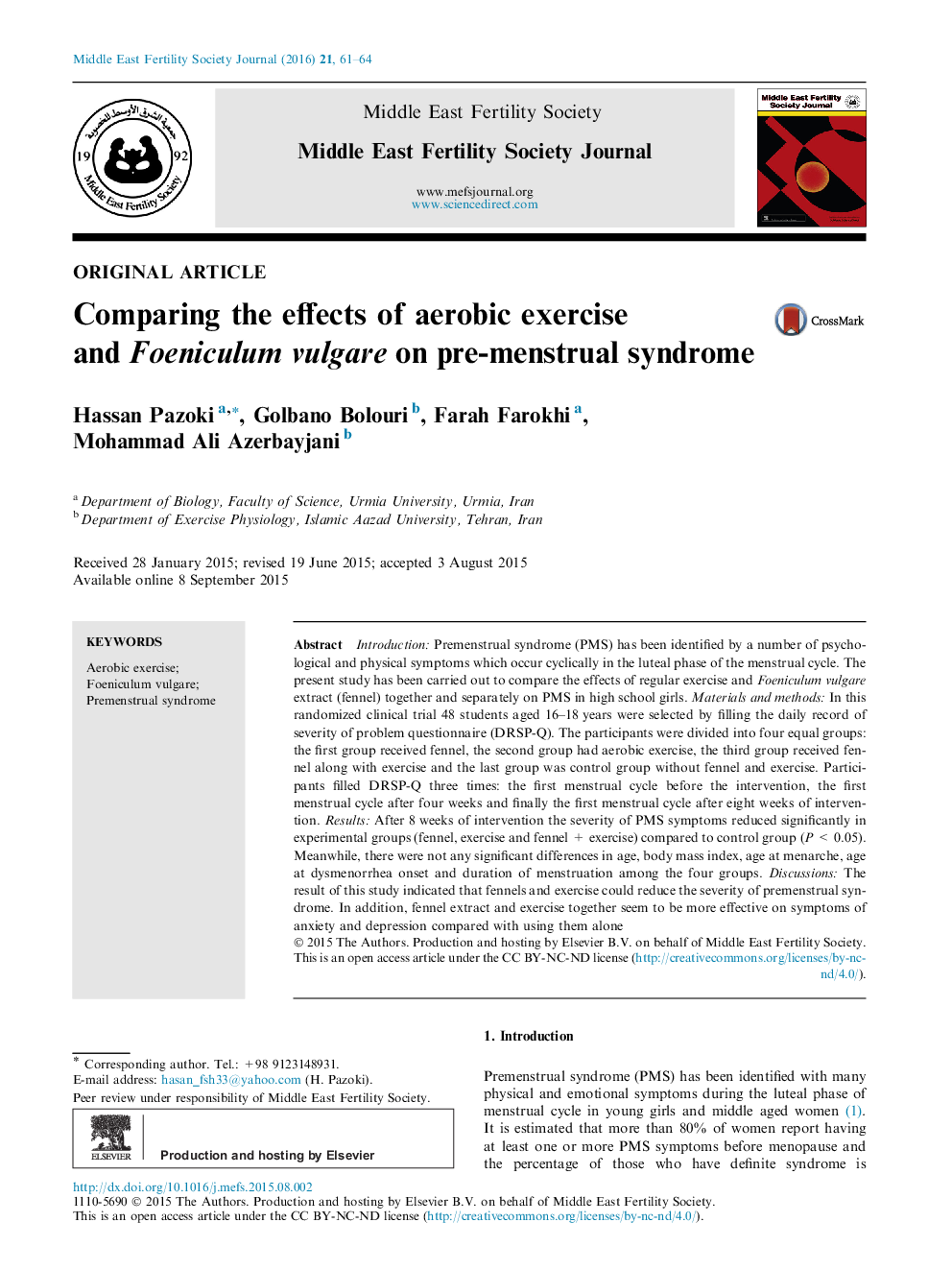| Article ID | Journal | Published Year | Pages | File Type |
|---|---|---|---|---|
| 3966074 | Middle East Fertility Society Journal | 2016 | 4 Pages |
Introduction: Premenstrual syndrome (PMS) has been identified by a number of psychological and physical symptoms which occur cyclically in the luteal phase of the menstrual cycle. The present study has been carried out to compare the effects of regular exercise and Foeniculum vulgare extract (fennel) together and separately on PMS in high school girls. Materials and methods: In this randomized clinical trial 48 students aged 16–18 years were selected by filling the daily record of severity of problem questionnaire (DRSP-Q). The participants were divided into four equal groups: the first group received fennel, the second group had aerobic exercise, the third group received fennel along with exercise and the last group was control group without fennel and exercise. Participants filled DRSP-Q three times: the first menstrual cycle before the intervention, the first menstrual cycle after four weeks and finally the first menstrual cycle after eight weeks of intervention. Results: After 8 weeks of intervention the severity of PMS symptoms reduced significantly in experimental groups (fennel, exercise and fennel + exercise) compared to control group (P < 0.05). Meanwhile, there were not any significant differences in age, body mass index, age at menarche, age at dysmenorrhea onset and duration of menstruation among the four groups. Discussions: The result of this study indicated that fennels and exercise could reduce the severity of premenstrual syndrome. In addition, fennel extract and exercise together seem to be more effective on symptoms of anxiety and depression compared with using them alone.
